Zinc Supplement Benefits
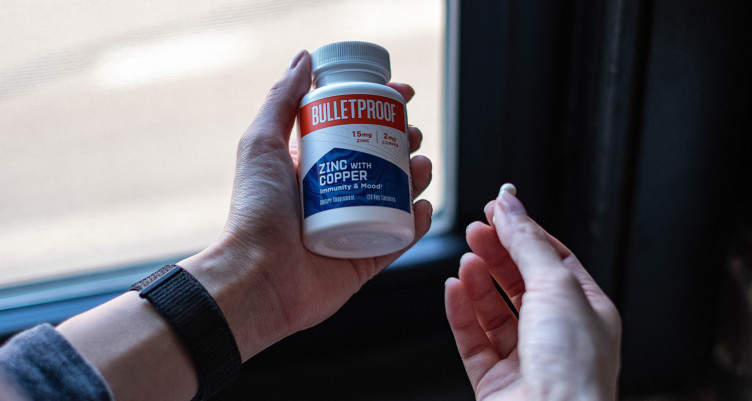
- Zinc is an essential mineral that’s needed for cell growth, immune function, skin health and more.
- Foods like meat, seafood, whole grains and legumes provide zinc. However, plant-based sources contain phytates that can inhibit absorption.
- Zinc can interfere with copper absorption, too. Bulletproof Zinc with Copper avoids that issue and delivers both minerals in a convenient, easy-to-take form.
Zinc is an essential mineral[1] that’s critical to many important bodily processes. It supports immune function, skin health and cell growth. Zinc is also involved in protein and DNA synthesis, cell division and the function of more than 200 enzymes.
Foods high in zinc include meat, fish and seafood. It’s also available as a supplement. Keep reading to learn about how much you need, zinc supplement benefits and some caveats about this mineral.
Zinc Supplement Benefits
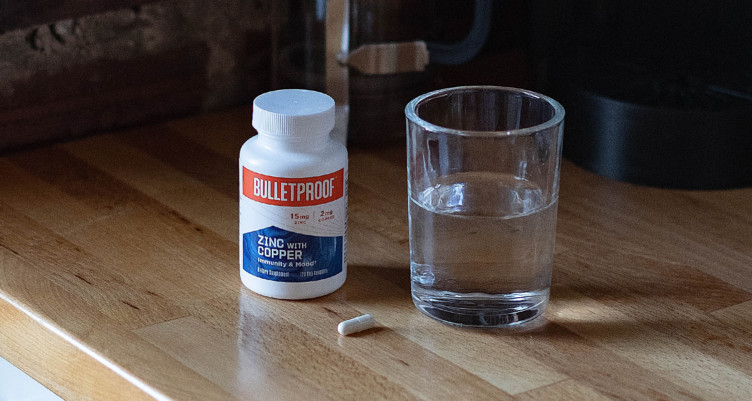
Zinc is a micronutrient that is needed at all stages of life. Here are a few of the most important roles this mineral plays in your body:
- Helps support your immune system: Zinc is essential to immune function.[2] It supports the signaling between your body’s immune tolerance and defense systems. Zinc has antioxidant properties, and it’s essential in the development of T-cells, which guard against antigens. While the full details are not yet fully understood, studies confirm a link between zinc supplements and immune functions.
- Supports skin health and healing: Zinc supports the function of mucous membranes and skin tissue cells. Your body needs zinc for every step in wound healing,[3] from repairing cell membranes to managing oxidative stress, tissue generation and scar formation.
- May shorten a cold’s duration (some forms): According to a meta-analysis published in JRSM Open in 2017,[4] lozenges containing zinc gluconate and zinc acetate are likely equally effective in treating the common cold. However, the authors urged more research into both dosage and ingredients.
- Zinc benefits for men The mineral plays a key role in supporting testosterone production and fertility. Research shows that zinc affects thyroid function by helping produce hormones that influence metabolism and body temperature.[5] A zinc deficiency can lead to inadequate hormone production. This can impact testosterone levels and, in turn, men’s fertility, sex drive and long-term sexual health.
- Zinc benefits for women: For women, zinc’s benefits are not as targeted or well-understood.[6] Its overall benefits may also support the female reproductive system. Supplementing with zinc may have positive effects on the symptoms of polycystic ovarian syndrome and lessen the severity of dysmenorrhea.
How Much Zinc Do I Need?
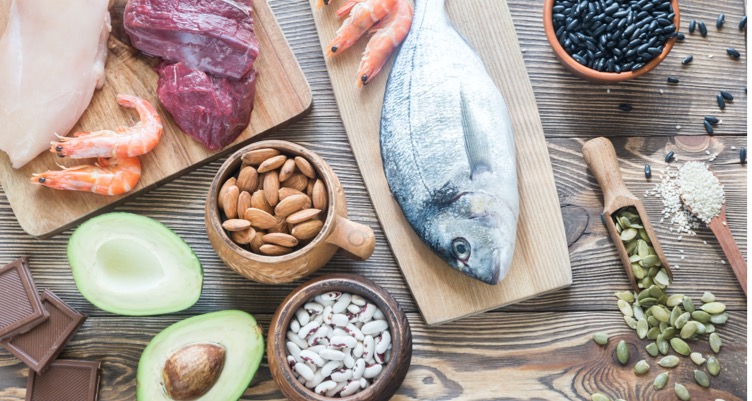
As an essential mineral, your body cannot make zinc.[7] It must be consumed via food or supplements. The recommended dietary allowance (RDA) for men over age 19 is 11mg of zinc per day. Women need 8mg from age 19. During pregnancy, the RDA is 11mg.
These are the top foods high in zinc:[8]
- Oysters: 28-32mg (3 oz cooked and raw, respectively)
- Beef: 3.8 mg (3 oz cooked)
- Crab: 3.2mg (3 oz cooked)
- Breakfast cereal, fortified: 2.8mg per serving (1 cup; varies by brand)
- Oats: 2.3 mg (1 cup cooked)
- Pumpkin seeds: 2.2mg (1 oz)
- Pork: 1.9 mg (3 oz cooked)
- Turkey: 1.5 mg (3 oz cooked)
- Cheddar cheese: 1.5 mg (1.5 oz)
- Lentils: 1.3mg (1/2 cup cooked)

Taking too much zinc can interfere with copper absorption.[9] A copper deficiency[10] could lead to muscle weakness, neurological problems and anemia. (That’s why you want to take zinc and copper together in science-backed amounts.) These minerals combine to form an antioxidant enzyme, copper-zinc superoxide dismutase (CuZnSOD).[11] This enzyme helps your body fight oxidative stress.
Legumes, whole grains and fortified cereals provide zinc. However, they also contain compounds called phytates that bind to zinc and interfere with its absorption.[12] Soaking grains and legumes before cooking can help release zinc. Those following a vegetarian diet might need to consume additional zinc.[13]
Related: What Is Bioavailability? How to Make Sure Your Supplements Actually Work
The Best Zinc Supplement
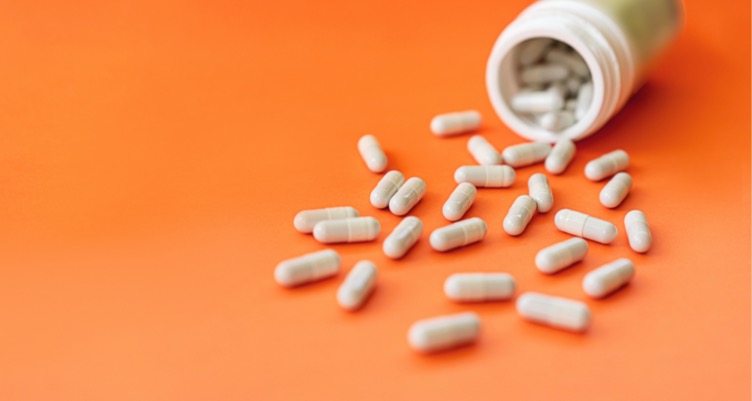
Before taking any supplement, talk to your health-care provider. Zinc comes in several forms, including zinc sulfate, zinc gluconate, zinc acetate and zinc orotate (the form used in the Bulletproof Zinc with Copper). Research says they’re all bioavailable, absorbable and tolerated.[14]
For optimal zinc supplement benefits, choose one that also contains copper, such as Bulletproof Zinc with Copper. Taking them together prevents copper depletion.
Keep these guidelines in mind when choosing the best zinc supplement for you:
- Alcohol reduces your body’s ability to absorb zinc. Don’t take your zinc supplement in the evening if you drink alcohol.
- Zinc is best absorbed when taken on an empty stomach, but that can cause stomach upset. We recommend taking Bulletproof Zinc with Copper with food. Thanks to science-backed doses of zinc and copper, you will still get the desired benefits.
- Zinc supplements can interact with certain medications, including some antibiotics, diuretics and the rheumatoid arthritis drug penicillamine.
- Talk to your health-care provider before taking a zinc supplement.
- Always follow the instructions on the label. Zinc toxicity is possible and may cause gastrointestinal problems, loss of appetite, nausea and vomiting.
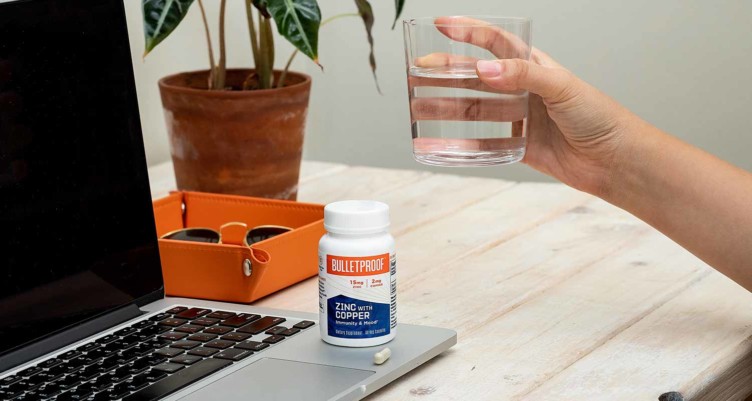
Sign up for early access to sales, product launches, the latest Bulletproof news and more!



